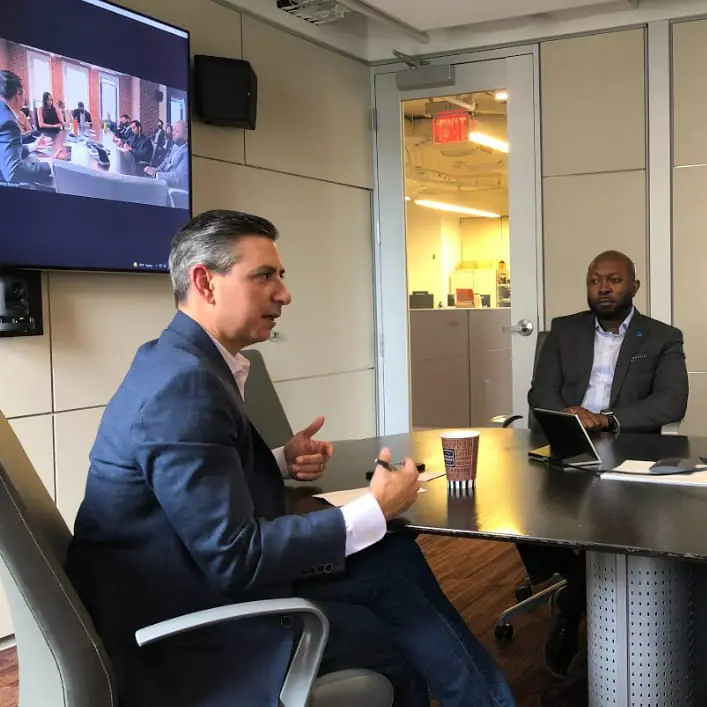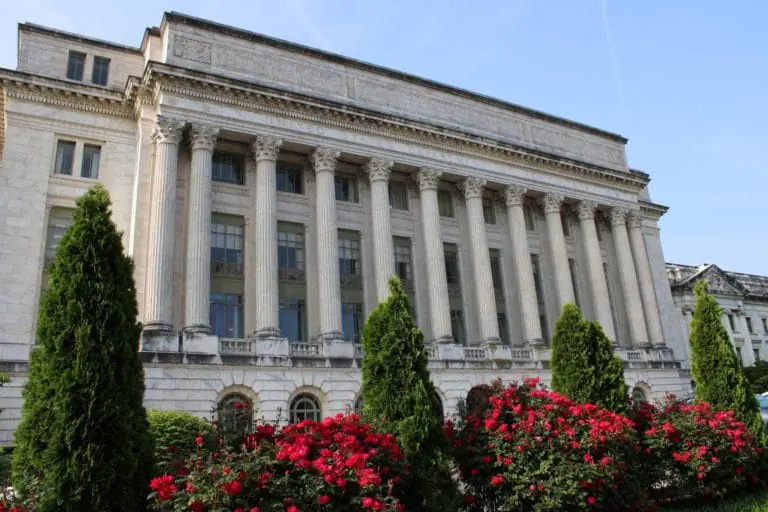Swette Sustainable Food Systems

Industry perspectives on influencing the food system
Before my visit to our nation’s capital for our food policy course, my opinion regarding lobbyists, admittedly from an uninformed perspective, was of someone paid to push their company’s product or issue ahead of others. I didn’t know what it took to have a voice on Capitol Hill that carried weight to influence real change.

Talking nutrition with Kumar Chandran, USDA Senior Advisor
During our cohort’s DC immersive program, we had the pleasure of sitting down with Kumar Chandran, a USDA Senior Advisor focusing on nutrition under Secretary Vilsack. This isn’t Mr. Chandran’s first foray at USDA; he previously served as Chief of Staff to the Under Secretary for Food, Nutrition, and Consumer Services in the Obama Administration.

The grit, determination and plans of Janie Hipp
They say never meet your heroes, but that is only because they haven’t had the pleasure of speaking with Janie Hipp. One of the biggest highlights of our DC Immersive trip was sitting down with the General Counsel for the USDA.

Reflections on a regenerative farm field day in Nebraska
It was an overcast day in mid-July when I turned onto the gravel road leading me to the Grain Place Farm in central Nebraska. As I turned, I slowed down to take notice of the familiar sign that reads: “How your food is produced does matter.”

Where the water goes: Water in Arizonan agriculture
It’s no secret that agriculture uses a large percentage of our Earth’s fresh water supply. In Arizona, 74% of fresh water is used for agricultural purposes. That number has been as high as 90% in the mid to late 1900’s. The decrease in water consumption in Arizona’s agricultural sector can be explained by the ever-expanding urban sprawl as well as improved irrigation technologies.

Evolutionary implications of economies of scale in food production for the sustainability of agricultural systems
Last month, I participated in the Sustainability Research & Innovation Congress 2022 (SRI2022) that took place in Pretoria, South Africa from June 20-24. The Congress is “a transdisciplinary gathering in sustainability – a space of dynamic advocacy for sustainability scholarship, innovation, collaboration, and action." It takes place annually in different parts of the world and brings together global leaders, experts, industry, practitioners, and innovators to inspire action and promote transformation in sustainability.

Dr. Chavonda Jacobs-Young: Creating a healthier future for Americans
While in Washington D.C., our ASU sustainable food policy cohort met with key stakeholders in the agriculture realm—both virtually and in person.

Farm production and conservation leadership discuss institutionalizing change
This spring, my classmates and I had the opportunity to travel to Washington D.C. to meet with multiple food policy experts who work within and alongside the United States Department of Agriculture (USDA). As graduate students in the Food Policy and Sustainability Leadership Certificate program with Arizona State University, our class had the privilege to meet with politically appointed leaders.

"The Budget Overseer"
The President of the United States is surrounded by people who carry out missions to maintain order and progress. The Office of Management and Budget (OMB) is a specific agency within the Executive Office of the President (EOP) that helps the President implement their vision. The OMB performs this function by developing and executing the President's budget and through providing guidance to agencies, reviewing and clearing testimony, regulations, and Presidential Executive Orders.

The Hagstrom Hangout
Following a long, exciting, tiring, informative, and insightful week, my classmates and I had one final trip to make for our D.C. Food Immersion course as students in the Sustainable Food Systems program. Jerry Hagstrom, journalist, local celebrity, and walking encyclopedia of Washingtonian culture, had invited our cohort to his home in Woodley Park for a chat about food over some pizza and wine.

WWOOFing on a small organic farm in NY
World Wide Opportunities on Organic Farms is an organization like no other that provides anyone the opportunity to travel and work on farms around the world. The process starts with registering as a WWOOFer on their website and finding a host. When I decided to pursue this opportunity, I wanted to stay in the United States as a “test run” before committing to an abroad experience.

Fighting food crises with Jocelyn Brown Hall of FAO
Jocelyn Brown Hall is the Director of the North American Liaison Office of FAO, the Food and Agriculture Organization of the United Nations, which has a focus on food security and agriculture management. The organization was formed post World War II in Canada to reduce hunger while improving food and nutrition security. Currently, there are 190 participating members, and they are present in over 130 countries across the globe.